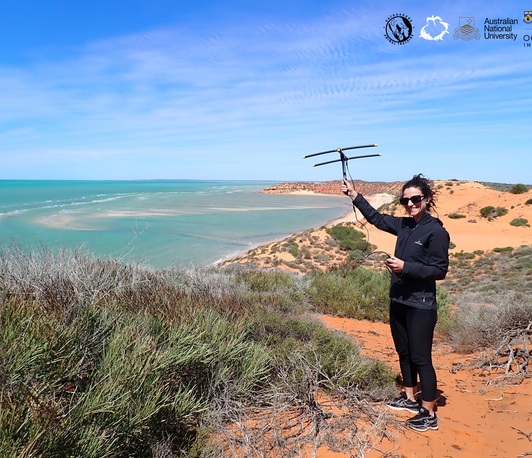A Global Perspective on Marine Megafauna Movement and Conservation
Institute Seminar by Ana Sequeira
- Datum: 02.07.2024
- Uhrzeit: 10:30 - 11:30
- Vortragende(r): Ana Sequeira
- Ana is interested in the development of models to assist understanding the marine environment, with a strong emphasis in supporting marine spatial planning and conservation. She has been involved in a range of global projects, and after securing highly competitive fellowships from Pew Trusts (Pew Fellowship in Marine Conservation) and from the Australian Research Council (ARC DECRA) she is leading pioneering research as an adjunct research fellow at the University of Western Australia (UWA) and as an Associate Professor at the Australian National University (ANU) in the Movement Ecology of marine megafauna (large, migratory marine vertebrates such as sharks, whales, seals, polar bears).
- Ort: MPI-AB Möggingen
- Raum: Seminar room MPI-AB Möggingen + Online
- Gastgeber: Max Planck Institute of Animal Behavior
- Kontakt: ffrisoni@ab.mpg.de

Increasing marine protected areas is a necessary step towards reversing the loss of marine biodiversity, but despite the recent resolutions from the Kunming-Montreal Global Biodiversity Framework to protect at least 30 % of the ocean, there is no clear pathway for which areas should be elected for protection. I will present the MegaMove project (www.megamove.org; endorsed by the UN Ocean Decade), resulting from a unique transdisciplinary collaboration between 378 biologists, ecologists, physicists, oceanographers and modelers (from 285 institutions across 49 nations), as a pathway to answer this topical question with a focus on marine megafauna. Marine megafauna include species with key roles in maintaining the ecosystems balanced and can be considered sentinel species. MegaMove makes use of the largest tracking dataset ever compiled across marine megafauna taxa globally to detect areas of ecological importance. These areas could be selected to prioritise protection, including areas used for key marine megafauna life-history events across flying birds, cetaceans, fishes, penguins, polar bears, seals, sirenians and turtles. I will show how these data can be used to reveal the severe overlap between marine megafauna space use and major global anthropogenic threats across the ocean, including commercial fishing, shipping, noise, plastic, and climate change. Overlaps detected provide a baseline for understanding the spatio-temporal co-occurrence of marine megafauna and human activities that can be alleviated through management. The creation of a risk index based on species vulnerabilities to different human activities is key to reveal the current level of threat present and understand how we can mitigate threats and better protect marine megafauna, our global heritage.
Hosts: Francesca <ffrisoni@ab.mpg.de> + Sierra <smattingly@ab.mpg.de>
The MPI-AB Seminar Series is open to members of MPI and Uni Konstanz. The zoom link is published each week in the MPI-AB newsletter.